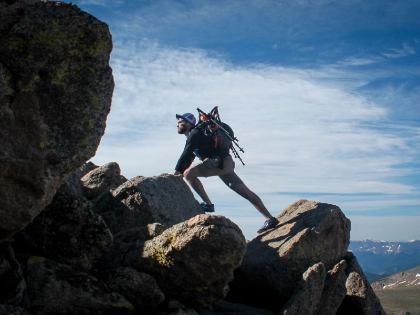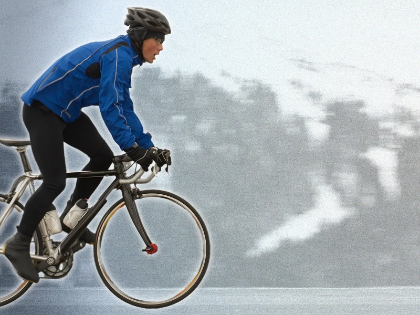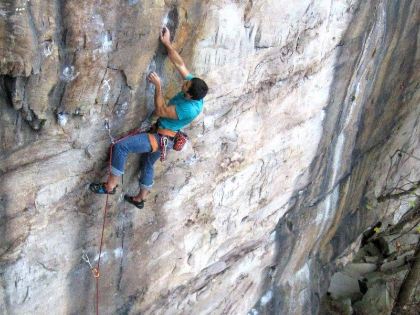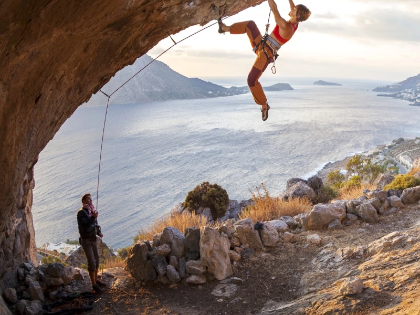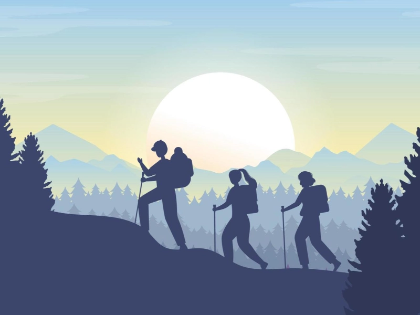Is hiking a form of adventure?
A particularly thrilling activity is mountaineering, which offers both excitement and fellowship. Reaching the summit of difficult-to-reach summits generally requires months of planning and sophisticated climbing skills. Climbing presents both mental and physical challenges that help develop important life skills. A novice begins with hiking before progressing to more challenging terrain. They get stamina for the long summer days spent in the mountains as well as technical mountain climbing skills from this.
Physical Difficulties
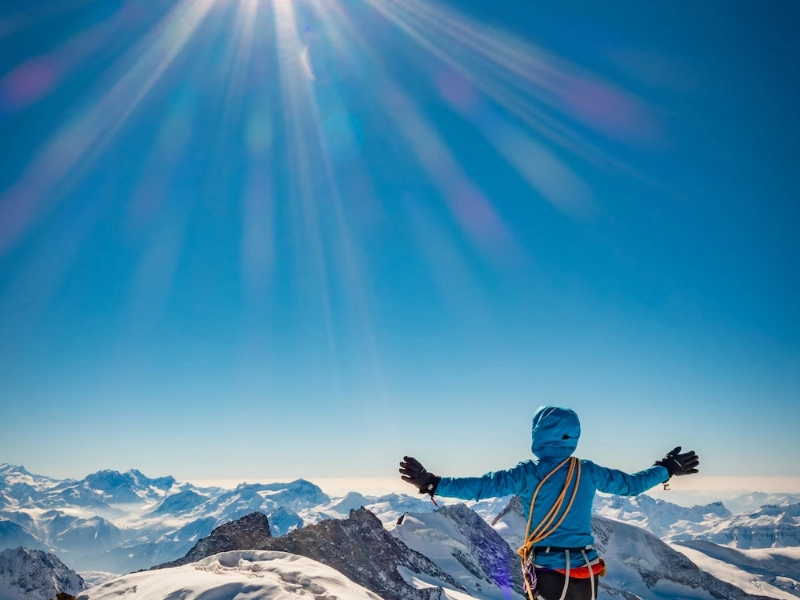 Mountaineering is an outdoor sport that entails trekking, rock climbing, or ice climbing in challenging environments at elevated elevations. It's an exhilarating experience for individuals who enjoy pushing themselves physically. It fosters personal development and strengthens resilience, decision-making, and problem-solving skills.
Mountain climbing is a risky sport that can result in serious injuries or even death, particularly if it is not done responsibly and with knowledge. Safe mountaineering requires familiarizing oneself with the mountains you plan to climb, adhering to safety procedures, and honoring environmental preservation.
In contrast to hiking, mountaineering is a strenuous activity requiring extensive training and specialized climbing equipment. It can also be very physically demanding, and the weather on a mountain can change quickly, making it harder than it looks. With his famous statement that he wanted to climb Mount Everest "just because it's there," British mountaineer George Mallory has encouraged many others to take up the challenge of reaching lofty altitudes.
Mountaineering is an outdoor sport that entails trekking, rock climbing, or ice climbing in challenging environments at elevated elevations. It's an exhilarating experience for individuals who enjoy pushing themselves physically. It fosters personal development and strengthens resilience, decision-making, and problem-solving skills.
Mountain climbing is a risky sport that can result in serious injuries or even death, particularly if it is not done responsibly and with knowledge. Safe mountaineering requires familiarizing oneself with the mountains you plan to climb, adhering to safety procedures, and honoring environmental preservation.
In contrast to hiking, mountaineering is a strenuous activity requiring extensive training and specialized climbing equipment. It can also be very physically demanding, and the weather on a mountain can change quickly, making it harder than it looks. With his famous statement that he wanted to climb Mount Everest "just because it's there," British mountaineer George Mallory has encouraged many others to take up the challenge of reaching lofty altitudes.
Mental Sturdiness
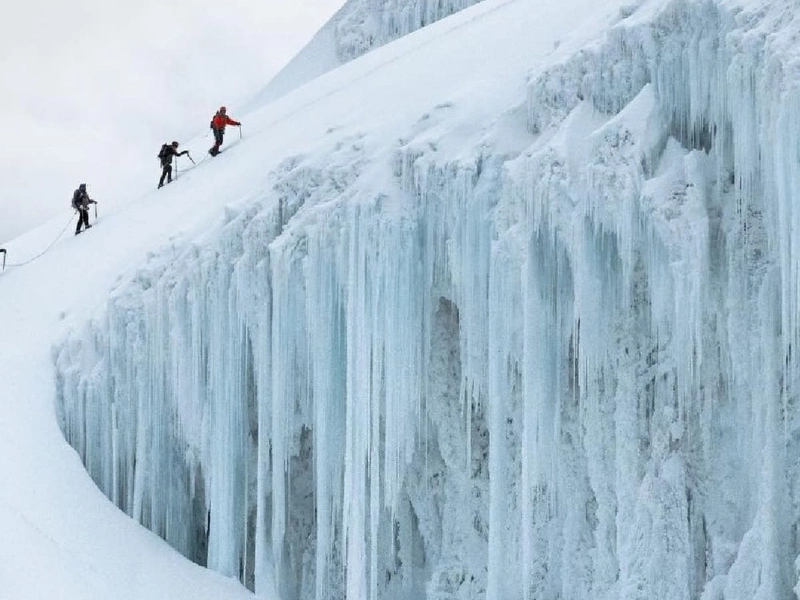 A strong sense of mental fortitude is necessary for a successful mountaineering expedition. Whether you're dealing with unanticipated difficulties or physical problems, learning to overcome adversity can help you develop important life skills like problem-solving and decision-making.
As your climbing abilities advance, you'll get a deeper understanding of how your body responds to environmental stressors and outdoor activities. This knowledge can assist you in foreseeing and getting ready for specific situations before they happen.
"What doesn't kill you makes you stronger," as the saying goes. In the end, mountaineering can yield unfathomable benefits. Whether your goal is to scale the highest mountains on Earth or just spend time in the great outdoors, mountaineering provides an amazing opportunity for personal development and makes lifelong memories. Adventurers find the sport to be an alluring pastime because of its thrill and sense of community. It's crucial to remember that mountaineering does have inherent risks, which, if not adequately prepared for, can result in fatalities or major injuries.
A strong sense of mental fortitude is necessary for a successful mountaineering expedition. Whether you're dealing with unanticipated difficulties or physical problems, learning to overcome adversity can help you develop important life skills like problem-solving and decision-making.
As your climbing abilities advance, you'll get a deeper understanding of how your body responds to environmental stressors and outdoor activities. This knowledge can assist you in foreseeing and getting ready for specific situations before they happen.
"What doesn't kill you makes you stronger," as the saying goes. In the end, mountaineering can yield unfathomable benefits. Whether your goal is to scale the highest mountains on Earth or just spend time in the great outdoors, mountaineering provides an amazing opportunity for personal development and makes lifelong memories. Adventurers find the sport to be an alluring pastime because of its thrill and sense of community. It's crucial to remember that mountaineering does have inherent risks, which, if not adequately prepared for, can result in fatalities or major injuries.
Immersion in Culture
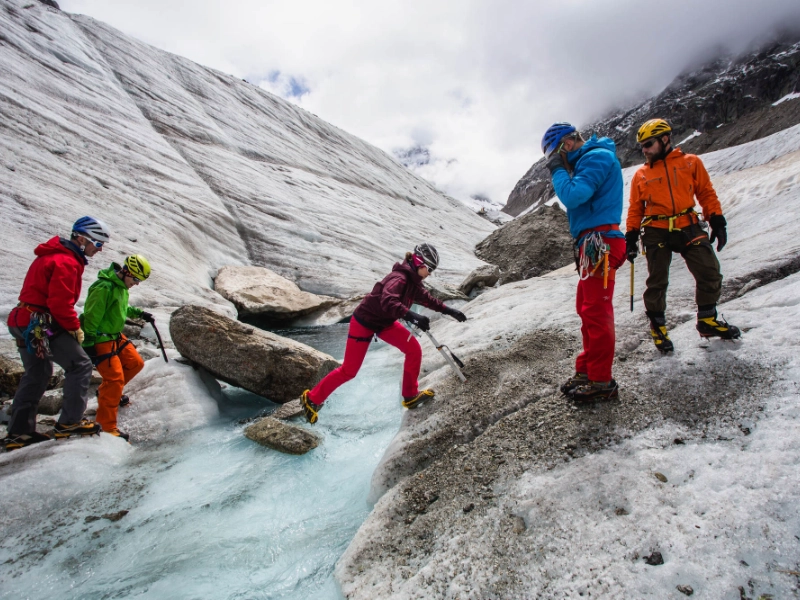 Many hikers have moments in their lives when they stare up at a snow-capped peak and wonder how far it would be to get there. At that point, they make the decision to step up their adventure and start mountaineering. The main objective of expedition mountaineering is to reach the top of a particular peak or cross a ridgeline, in contrast to hiking, where the destination is usually a trailhead or campsite.
Taking on these challenges fosters personal development by strengthening one's capacity for decision-making and problem-solving, as well as resilience and self-discovery. Furthermore, climbing in pristine settings promotes a strong bond with the natural world and heightens awareness of the importance of conservation. For instance, mountaineers frequently visit isolated areas of the globe where they engage with native populations and become familiar with their customs. Mountaineers learn through cultural immersion that venturing beyond their comfort zones isn't always a negative thing.
Many hikers have moments in their lives when they stare up at a snow-capped peak and wonder how far it would be to get there. At that point, they make the decision to step up their adventure and start mountaineering. The main objective of expedition mountaineering is to reach the top of a particular peak or cross a ridgeline, in contrast to hiking, where the destination is usually a trailhead or campsite.
Taking on these challenges fosters personal development by strengthening one's capacity for decision-making and problem-solving, as well as resilience and self-discovery. Furthermore, climbing in pristine settings promotes a strong bond with the natural world and heightens awareness of the importance of conservation. For instance, mountaineers frequently visit isolated areas of the globe where they engage with native populations and become familiar with their customs. Mountaineers learn through cultural immersion that venturing beyond their comfort zones isn't always a negative thing.
Life Guidance
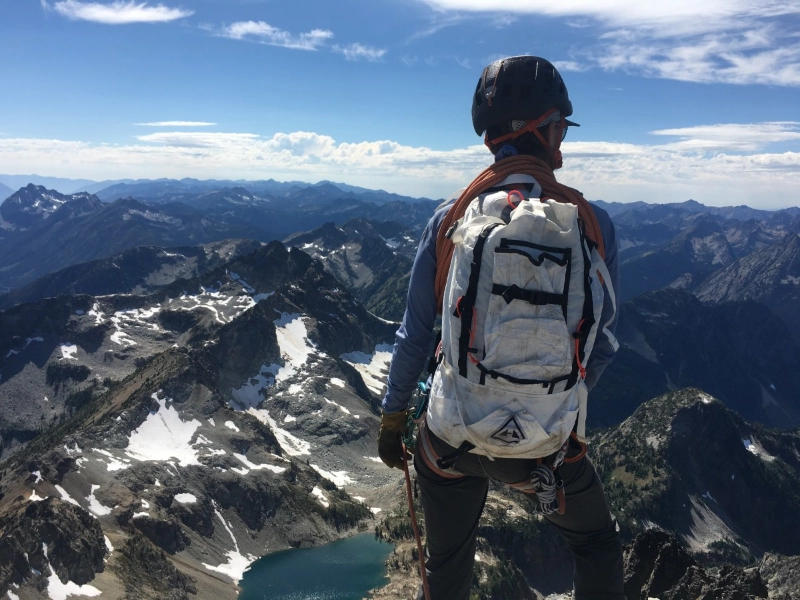 Mountaineering is a journey that tests people's physical, mental, and emotional limits, whether they are seeking the rush of conquering new heights or a profound spiritual connection with the natural world. It also imparts life skills that promote personal development and help people make enduring memories.
Whatever your motivation for climbing, it's critical to have the appropriate equipment, be familiar with the steep environment, and comprehend safety precautions. If you don't, you can end up in a hazardous circumstance from which you might not be able to escape.
Being the greatest climber in town appeals to certain people with large egos, but it isn't the main purpose of mountaineering. It is about collaborating as a team and taking lessons from each other's accomplishments and shortcomings. It also involves having the guts to overcome your anxieties and move beyond your perceived boundaries. The critically acclaimed movie Touching the Void is a great illustration of how to survive in a hazardous mountainous setting.
Mountaineering is a journey that tests people's physical, mental, and emotional limits, whether they are seeking the rush of conquering new heights or a profound spiritual connection with the natural world. It also imparts life skills that promote personal development and help people make enduring memories.
Whatever your motivation for climbing, it's critical to have the appropriate equipment, be familiar with the steep environment, and comprehend safety precautions. If you don't, you can end up in a hazardous circumstance from which you might not be able to escape.
Being the greatest climber in town appeals to certain people with large egos, but it isn't the main purpose of mountaineering. It is about collaborating as a team and taking lessons from each other's accomplishments and shortcomings. It also involves having the guts to overcome your anxieties and move beyond your perceived boundaries. The critically acclaimed movie Touching the Void is a great illustration of how to survive in a hazardous mountainous setting.

